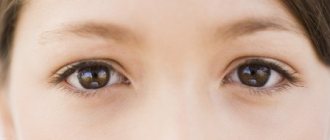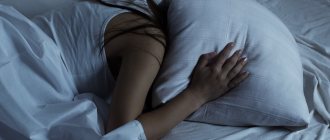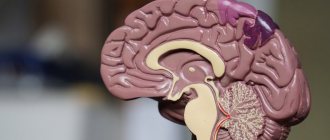Sleep disorders in adults and children are conditions that lead to sleep problems. Sleep problems can range from lack of sleep to lack of sleep.
Collectively or individually, sleep disorders have a negative impact on a person’s overall health and quality of life. For example, lack of sleep affects the ability to drive safely and increases the risk of cardiovascular diseases, diabetes, and obesity.
Why do sleep disorders occur?
Sleep disturbance occurs for various reasons. In most cases, sleep disorder is associated with a person’s lifestyle, his sleep and wakefulness patterns, and health status. Often, the causes of sleep disturbances are associated with bad habits, taking medications, and also with working conditions. For example, lack of sleep in people who work shifts leads to an increased risk of diabetes and weight problems.
Signs and symptoms of sleep disorders include:
- excessive daytime sleepiness;
- irregular breathing;
- increased mobility during sleep;
- irregular sleep-wake cycle;
- difficulty falling asleep.
The most common types of sleep disorders include:
- insomnia, which makes it difficult to fall asleep or stay asleep during the night after waking up;
- sleep apnea, when a person experiences interrupted breathing, often accompanied by snoring;
- restless legs syndrome (RLS), which causes discomfort and the urge to move your legs when trying to sleep;
- Narcolepsy is a condition characterized by extreme drowsiness and sudden sleep during the day (for example, while driving).
If you consult a doctor in a timely manner, many sleep disorders (for example, cases where you have lost sleep) can be treated. Some people may not notice sleep problems for a long time and wake up feeling rested, despite getting much less sleep than they need. After some time, women and men experience fatigue, frequent lack of sleep, and signs of insomnia (shallow or restless sleep) appear.
Classification of sleep disorders
1. Insomnia is insomnia, a disturbance in the process of falling asleep and staying asleep.
- Psychological refers to a psychological state and can be situational (temporary) or permanent.
- As a result of taking alcohol or taking medications:
1. chronic alcoholism;
2. prolonged use of drugs that activate or depress the central nervous system;
3. withdrawal syndrome from sleeping pills, sedatives or other drugs;
- Resulting from a mental illness
- Appearing as a result of breathing disorder during sleep:
1. syndrome of decreased alveolar ventilation;
2. sleep apnea syndrome;
- As a result of restless legs syndrome or nocturnal myoclonus
- As a result of other pathological conditions
2. Hypersomnia, which is increased sleepiness
- Psychophysiological, which is associated with the psychological sphere, can be permanent or temporary
- As a result of taking alcohol or taking medications;
- As a result of mental illness;
- As a result of various breathing disorders during sleep;
- Narcolepsy
- As a result of other pathological conditions
3. Incorrect wakefulness and sleep patterns
- Temporary sleep disturbances associated with a sudden change in work schedule or time zone
- Systematic sleep disorders:
1. slow sleep syndrome
2. premature sleep syndrome
3. syndrome in which there is no 24-hour sleep-wake cycle
4. Parasomnia, which is characterized by impaired functioning of systems and organs associated with sleep or awakening:
- somnambulism;
- enuresis;
- night terrors;
- nocturnal epileptic seizures;
- other disorders
Insomnia. What to do to fall asleep?
According to the American Academy of Sleep Medicine's ICSD-3 guideline, insomnia is defined as persistent difficulty in the initiation, duration, or quality of sleep. Insomnia has many potential factors and symptoms, but its diagnosis depends on two main components:
- sleep disorders that occur regardless of the availability of sufficient opportunities for normal sleep;
- daytime disturbances directly related to poor quality or duration of sleep (stress, emotional outbursts).
A doctor can determine the causes and signs of sleep disturbance. Insomnia happens:
- chronic, which is characterized by symptoms occurring at least three times a week for at least three months;
- short-term, lasting at least three months.
- How to treat insomnia? Depends on the manifestations of insomnia, since most diagnoses are divided into two categories:
- difficulty falling asleep as such (most often occurs in people whose life rhythm is not synchronized due to factors such as jet lag or an irregular work schedule);
- difficulty falling asleep after falling asleep briefly and then waking up (common in older people and in people who drink alcohol, caffeine, or tobacco before bed).
Some women and men have mixed insomnia, which includes problems with both sleep initiation and sleep duration. People who suffer from chronic insomnia may experience symptoms of mixed insomnia. Over time, the signs of mixed insomnia may change.
Depending on the diagnosis, the doctor selects treatment: medication, cognitive behavioral therapy, transition to a healthy lifestyle and diet.
People suffering from insomnia need to:
- eliminate daytime naps, especially at the end of the day;
- limit the consumption of alcohol, caffeine and tobacco products in the evening;
- avoid late meals;
- exercise regularly throughout the day;
- Maintain a consistent sleep schedule that includes the same bedtime and wake-up time every day.
How to restore sleep during neurosis?
To restore restless, anxious or intermittent sleep due to neurosis, you need to consult a neurologist. Insomnia with neurosis often occurs due to the aggravation of a number of psychological factors (apathy, fatigue, anxiety, psychological trauma). Disruption of sleep patterns due to neurosis is based on the use of drug therapy, which is based on the use of sleeping pills and sedatives. Sometimes the patient may be prescribed tranquilizers.
Also, treatment of insomnia in neurosis involves combating stress and using psychotherapeutic methods (group or individual therapy). The patient needs to avoid strong psychological stress and experiences, control emotions, and avoid depression.
Symptoms of sleep disorders
Symptoms of sleep disorders can vary and depend on the type of disorder. However, regardless of sleep disturbance, in a short period of time it can lead to a change in a person’s emotional background, performance and attentiveness. School-age children have learning disabilities and are less able to assimilate new information. There are often cases when a patient comes to the doctor complaining of worsening health, without realizing that this is related to disturbed sleep.
Psychosomatic insomnia. Insomnia is situational when it lasts no more than three weeks. People who suffer from insomnia have trouble falling asleep, wake up frequently in the middle of the night, and have difficulty getting back to sleep. They are characterized by early morning awakening and feel a lack of sleep after sleep. Because of this, they experience irritability, emotional instability, and overwork. The situation is complicated by the patients’ constant worries about disturbed sleep and anxious anticipation of the night. The time they spend trying to fall asleep lasts twice as long for them. Situational insomnia is caused by a person’s emotional state under the influence of certain psychological phenomena. Often, after the effects of stressful conditions cease, sleep returns to normal. But in certain cases, difficulties falling asleep, as well as night wakefulness, become commonplace, and the fear of insomnia further worsens the situation, which leads to the formation of regular insomnia.
Insomnia resulting from the use of alcoholic beverages or medications. Long-term regular consumption of alcohol can lead to sleep disturbances. The REM sleep phase is shortened and the patient often wakes up in the middle of the night. Once alcohol intake is stopped, the problem usually disappears after two weeks.
Disturbed sleep may be a side effect of medications taken that excite the nervous system. Long-term use of sleeping pills and sedatives also leads to insomnia. Over time, the effect of the drug wanes, and increasing the dose leads to a short-term improvement in the situation. Due to disturbed sleep, aggravation is possible, despite increased doses. In such situations, systematic short-term awakenings are observed, and a clear boundary between sleep phases disappears.
When a mentally ill person has insomnia, he or she experiences a constant feeling of severe restlessness at night, fairly light and shallow sleep, frequent awakenings, daytime apathy, and fatigue.
Sleep apnea syndrome or sleep apnea is a short-term cessation of air flow into the upper respiratory tract that occurs during sleep. Such a pause in breathing is usually accompanied by snoring or restlessness. There are obstructive apneas, which begin as a result of the closure of the lumen of the upper respiratory canals during inspiration, and central apneas, related to deviations in the functioning of the respiratory center.
Insomnia during restless legs syndrome begins to develop as a result of a feeling that forms deep in the calf muscles, which requires movement of the legs. The urge to move your legs appears before bed and disappears when you start walking, but it may return later.
What are the dangers of constant lack of sleep?
Periodic or constant lack of sleep or sleep disturbance in children and adults can lead to many health problems. Lack of sleep or insufficient sleep leads to:
- low body resistance to respiratory diseases;
- problems with the heart and blood vessels;
- diseases of the thyroid gland and endocrine system;
- metabolic disorders;
- decreased immunity.
Studies have proven that people who often do not get enough sleep are more prone to depression, anxiety and paranoia than those who have healthy sleep.
What helps calm the nervous system?
If insomnia occurs due to neurosis, stress and other pathologies, it is necessary to calm the nervous system with the help of means prescribed by the doctor. You cannot arbitrarily and uncontrollably take sleeping pills and other medications without a prescription. Self-medication leads to poor health and the development of new diseases.
Why does insomnia occur permanently? There can be many reasons and it is better to seek help from a doctor with this problem. In some cases, a person needs complex treatment with the participation of a neurologist and psychologist.
What vitamins are needed to strengthen the nervous system?
To strengthen the nervous system in case of sleep problems, the doctor selects vitamin complexes, which include minerals, microelements and macroelements. B vitamins have a beneficial effect on the nervous system, simultaneously improving attention and metabolic processes in the body.
The selection of vitamins depends on the diagnosis made by the doctor. For example, sleep disturbance during pregnancy involves the use of complexes containing folic acid, vitamins B1, B6, B9, C, as well as minerals (potassium, magnesium, iron). If neurosis and insomnia occur during pregnancy, the woman is not recommended to use sleeping pills. Depending on the diagnosis, the pregnant woman is prescribed anti-depressants that are gentle on the fetus.
The duration of vitamin intake should be agreed with a doctor, especially for people who have been diagnosed with problems with the nervous system, as well as those who have problems with blood pressure and heartbeat.
0
1
1
Article rating:
5 out of 5 based on 2 ratings
Author: Karaban Victoria Sergeevna
Neuropathologist. First category. Work experience more than 15 years.
Symptoms of stress
Stress is manifested not only by emotional tension. With strong and frequent stressors, a decrease in memory and attention appears, and rapid fatigue is noted. A person experiences irritability, sleep disturbances, apathy, sometimes turning into depression.
Complaints of sleep disorders during stress include difficulty falling asleep, shortened sleep periods, frequent awakenings, shallow sleep, and lack of energy after rest. A typical sleep disorder under stress is the appearance of parasomnias: sleepwalking, nightmares, increased motor activity during sleep, confusion during night awakenings. Stress often causes the onset of various pain syndromes: tension headaches, migraine attacks.







